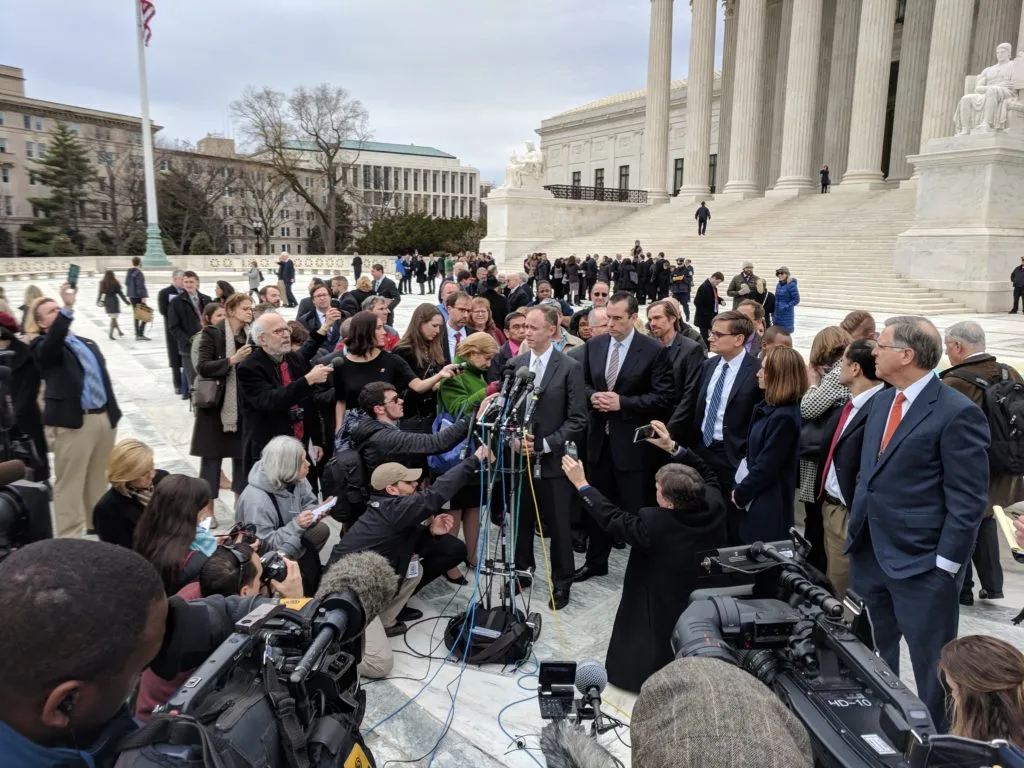Data Suggest 410,000 Government Employees Rejected Unions

Late last June, the U.S. Supreme Court decided that government employers across the country may not cut deals with Big Labor officials to fire civil servants simply for refusing to pay dues or fees to a union they don’t want, and never asked for. The ruling that government-sector forced union dues and fees violate the First and Fourteenth Amendments came in Janus v. American Federation of State, County and Municipal Employees Council 31, a case argued and won on behalf of independent-minded Illinois civil servant Mark Janus by National Right to Work Legal Defense Foundation attorney Bill Messenger.
At the time Janus was announced, the labor laws of 21 states explicitly authorized the extraction of forced union dues and fees from a wide range of public employees as a condition of working for the taxpayer.
Even before the Supreme Court released its opinion, Organized Labor observers recognized that a pro-free speech decision in Janus could potentially mean an ongoing annual loss of hundreds of millions or even billions of dollars in coerced union dues and fees for government union bosses.
To avoid major financial losses, Organized Labor knew it would have to persuade, by hook or by crook, vast numbers of workers to support unions voluntarily who, before Janus, were only forking over dues or fees because they had to in order to keep their jobs.
But a quick analysis of the 2017 and 2018 state union membership statistics posted on the Union Membership and Coverage Data Base, a web site launched and maintained by labor economists Barry Hirsch and David Macpherson, indicates that Big Labor has failed to convert conscripted dues and fee payers into voluntary members post-Janus.
The Hirsch-Macpherson data, which are compiled from estimates furnished by the U.S. Labor Department’s Current Population Survey, show that, in the 21 states that statutorily authorized and promoted forced financial support for all or nearly all government unions pre-Janus, there were a total of 5.45 million unionized civil servants in 2017. Under state laws governing them at that time, these employees had to pay dues or fees to the union wielding monopoly-bargaining privileges in their workplace, or be fired.
Among the 5.45 million, 5.14 million were coerced union members, and an additional 310,000 were forced fee-paying nonmembers.
Janus immediately freed civil servants who were already nonmembers to cease forking over any money to Big Labor. Even union spokesmen frequently concede this point. And in 2018, according to Hirsch-Macpherson data published early this week, the number of government union members in the 21 states with wide-ranging public-sector compulsory unionism pre-Janus fell to 5.04 million.
In other words, according to the Union Membership and Earnings Data Base, in 2018, government union bosses convinced a net total of zero forced-fee paying nonmembers employed in Big Labor stronghold states to become voluntary union members. Public-sector union membership actually fell by 100,000. Today, one may conservatively estimate that 410,000 fewer civil servants in erstwhile public-sector forced-dues states are turning over a portion of their paychecks to union bosses than was the case prior to last summer. That represents a decline of 7.5%.
Union bosses and their allied politicians in many jurisdictions have been doing everything they can to prevent public servants who were union members against their will prior to Janus from exercising their now-recognized right not to support Big Labor financially. As a consequence of this obstruction, it is undoubtedly the case that vast numbers of unionized government employees continue to have money siphoned out of their paychecks and directed to union treasuries despite their wishes.
Currently, the Right to Work Foundation is litigating 29 separate cases on behalf of independent-minded civil servants who have been completely or partially unable to exercise their Janus rights without going to court. An additional 43 Janus-related cases are being litigated by non-Foundation lawyers.
Right to Work supporters are optimistic that, as these cases progress, many Janus-circumvention schemes will be blocked by judicial orders, and hundreds of thousands, if not millions, of additional freedom-loving civil servants will be encouraged to assert their Janus rights.
PHOTO CAPTION: Last year, National Right to Work staff attorney William L. Messenger made Mark Janus’ arguments before the U.S. Supreme Court. Messenger’s winning arguments made it clear that all government-sector forced union dues and fees are unconstitutional. (Photo: National Right to Work Legal Defense Foundation.)

